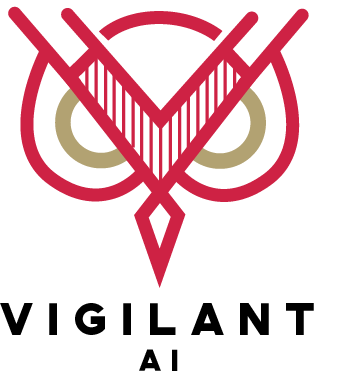Auditors play a critical role in ensuring the quality of financial reports. But as the volume and complexity of corporate financial data grows, traditional approaches to data management and review simply cannot keep up.
To ensure audit quality, auditors are continuing to assess and evaluate artificial intelligence (AI) tools and platforms that will help improve overall audit methodology and reduce the risk of audit failure.
The latest AI tools, such as MindBridge and Caseware DAS, already allow auditors to conduct risk assessments on 100 percent of the accounting entries before the audit begins, greatly reducing the time needed to identify areas of risk. However, while the speed of financial analysis has increased, auditors are still limited by the time it takes to read, review, and extract terms from business process source documentation associated with each transaction.
This article will show how an intelligent financial data management platform enables auditors to mitigate risk, improve audit quality, and deliver a more complete audit.
Mitigating Audit Risk
To mitigate the overall risk of an audit, auditors need to keep an eye of the three key dimensions of audit risk: inherent risk, control risk and detection risk. Any of these risk dimensions can cause an auditor to make a material error, leading to an overall audit failure.
Inherent risk is influenced by the nature of the business under audit. For example, businesses or industries that use more complex transactions or who use more complex corporate structures typically have a higher inherent risk. A good example of this is the recent fines levied by the PCAOB against firms auditing SPACs, a relatively new corporate structure. The implicit complexity of the information reduces the transparency of accounting entries, making it more difficult for the auditor to understand the business and easily identify specific areas of risk.
Control risk refers to the ability of a client company’s internal financial controls to prevent or detect material misstatements about a transaction, account, or disclosure before it is recorded. A lack of robust internal controls increases control risk and overall audit risk.
Finally, detection risk includes the possibility that the auditor’s analytical procedures and tests may not adequately detect material misstatements. Detection risk increases along with the volume of financial data since an auditor’s selected test sample may not be sufficient to extrapolate to the entire business process, especially when working under tight deadlines.
Download Improving Audit Quality
The Impact of Audit Failure
Failure to mitigate these risks can result in audit failure and severe consequences for both the audit firm and the client.
Regulators are highly sensitive to auditors not performing the proper checks on material data, and audit failure can result in significant fines or penalties. In the US, the PCAOB (Public Company Accounting Oversight Board)) issued record fines totalling nearly $12 million against more than three dozen firms in 2023.
Further, because investors and other stakeholders depend on the accuracy of financial statements, audit risk can come with legal liability. In one recent example, two large audit firms paid nearly $15 million each in legal settlements to investors of a company following a $300 million fraud that went undetected.
Beyond the legal and financial implications, audit failure can damage the reputation of the audit firm, the client, and other clients that have been certified by the auditor. Audit failure has also been shown to reduce the firm’s ability to keep clients in other parts of its business such as consulting or tax services.
Improving Audit Quality with Intelligent Financial Data Management
The completeness of the risk assessment process has a direct impact on audit quality.
Traditionally, auditors have relied on a sampling approach based on areas of likely statistical risk such as year-over-year revenue growth. The latest AI-driven tools allow auditors to numerically review 100% of the accounting entries, risk assessing the complete population. However, both approaches become bottlenecked by the time and cost required to review the source business process documentation within the fixed time set for the audit.
An intelligent data management platform overcomes these challenges by automating the initial review of the source documentation against the selected sample. The platform allows auditors to easily confirm routine transactions, which allows them to focus on the more complex and significant journal entries where the highest risk of material misstatement can occur.
Artificial intelligence automatically scans, reviews, and categorizes business process data to the selected transactions. It can then extract key terms from the documents and compare them against what was written in other documents and the accounting sub ledgers, linking all financial and business process data together in a fully contextualized data lake.
With all the critical source documentation and risk scored accounting entries in one place, auditors can more easily design tests to verify that all business process documentation aligns, simplifying the audit process and greatly reducing the time and cost of conducting a more complete analysis.
The Technology Needed for a Complete and Independent Audit
As the volume of corporate financial data grows, auditors need platforms that enhance audit quality and mitigate the risk of audit failure. Recent examples have shown that auditors are under increasing pressure from regulators, media, and the public, and the consequences of audit failure can be lasting and severe.
Artificial intelligence allows auditors to spend less time collecting and reviewing data before the audit takes place and more time testing potential areas of risk. By leveraging an intelligent financial data management platform, auditors can improve audit quality, mitigate audit risk, and deliver a more complete audit.



Recent Comments